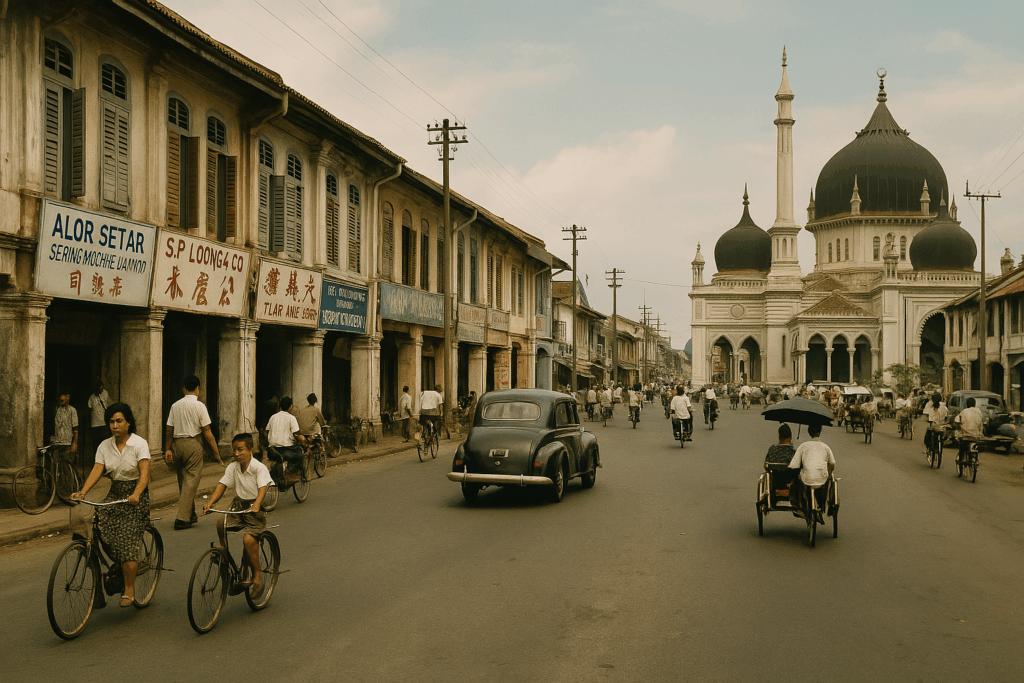
by Dr Rahim Said
There’s a curious thing about the places you grow up in. No matter how far you travel, how high you climb, or how many titles trail your name, the old town still tugs at you like an insistent child pulling at your sleeve.
Take my cousin, for example. A former Chief Justice — yes, that rarefied title — who now spends his retirement years wrangling monkeys on his four-acre Ulu Langat fruit farm.
Over tea (more like lime and “asam boi”) the other day at a cafe inexplicably named No One Alone (NOA) known for its Social Pickle Courts, he turned nostalgic, the way octogenarians tend to when faced with an agreeable glass of sweet sourish “asam boi” and someone to listen.
“I was born in Anak Bukit,” he declared, with a spark in his eye that made it feel like a badge of honour, as if birthplace alone explained character.
For the record, Anak Bukit is not just anywhere; it’s where the Sultan of Kedah resides. The kampung has a whiff of royal proximity, enough for those with romantic notions to fantasise about distant familial ties. There was, admittedly, some whisper in our family lore about an auntie marrying a Regent once, but it’s the sort of claim you make at weddings after your third glass of syrupy punch and promptly regret.
Alor Setar, by any objective measure, isn’t the stuff of postcards. It has no Esplanade like Penang, no dazzling caves like Sarawak, no pristine beaches like Kuantan. It’s a place of endless paddy fields that breed mosquitoes so bloodthirsty you’d think they were descendants of Vlad the Impaler.
During harvest season, the dry winds would kick up dust storms that sent my cousin into asthmatic fits — hardly the kind of childhood memory one clings to fondly.
And yet, here he is, 80 years on, still tethered to it.
Maybe it’s not the scenery but the soil. The people. The stubborn, sun-baked spirit of a northern town where everyone somehow seems connected through school ties, old neighbours, or family gossip.
My cousin went to Sultan Abdul Hamid College, the premier institution in the north — so did I, so did a string of ministers, corporate titans, and men who now write memoirs about how it all began.
He’s working on what might be his third book now, a memoir of his life, thoughts, and the assorted battles he’s fought, be it in courtrooms or against rogue macaques on his farm.
I suspect, though he won’t admit it, that it’s less about nostalgia and more about legacy. A man likes to leave his footprints where he once ran barefoot.
Perhaps, in the end, we all carry our hometowns like old photographs — creased, sepia-tinted, sometimes inconvenient, but impossible to throw away.
Alor Setar may lack waterfalls and fancy seafronts, but for people like my cousin, it holds something rarer: the stubborn memory of who you once were, and why you’ll never quite shake the town that made you.
And maybe that’s reason enough.
WE